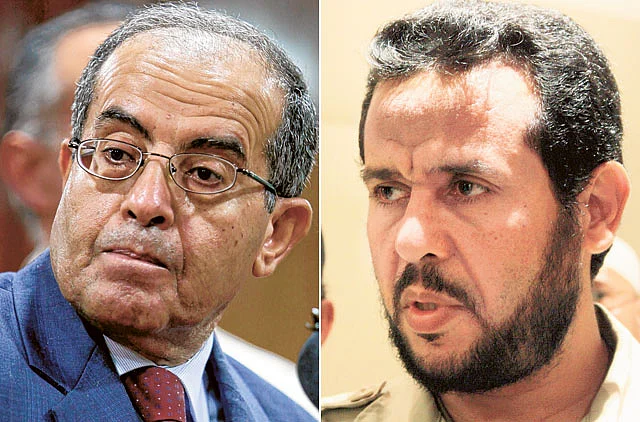Tripoli: A plan approved on Sunday by Libya's transitional leadership team to bring fighters under civilian authority has stoked tension between the new civilian leadership and the rebel commander whose troops patrol the city.
The dispute involves two of post-revolutionary Libya's best-known figures — Mahmoud Jibril, who serves as a kind of interim prime minister, and Abdul Hakeem Bel Haj, Tripoli's top military leader.
Their differing backgrounds give some hint of the diversity of leadership in the new Libya. Jibril is a US-educated technocrat who spent the civil war in the relative safety of the eastern city of Benghazi. Bel Haj is a front-line commander and former guerilla fighter in Afghanistan who says he was kidnapped and tortured by the CIA and turned over to the forces of Muammar Gaddafi, who jailed him for six years.
Behind the dust-up is a broader question of what role civilians and armed men will play in the new Libya, a nation now awash in weapons and still at war with Gaddafi holdouts. Council figures, including Jibril, are tasked with overseeing the nation's transition into a representative democracy after more than four decades of autocratic rule. Part of that task is disarming irregular militias and getting armed revolutionaries without civilian jobs into regular police and military units.
Pledge of loyalty
Bel Haj has pledged his loyalty to the transitional council, which was based in the eastern city of Benghazi but is slowly moving to Tripoli. But it is widely known that Bel Haj is upset at council plans to put military units under its umbrella.
"This proposal will divide everyone," said one pro-Bel Haj military official, who asked not to be identified because of the sensitivity of the matter. On Sunday, Bel Haj did not appear at the news conference announcing the plan. Jibril said the military leader had other commitments and denied there were any hard feelings.
"There is no problem between him [Bel Haj] and us," said Jibril, who referred to the fighters as "heroes" who had liberated the capital with a minimum of bloodshed. He called Bel Haj "a very important member" of the military command structure.
Libya remains without a functioning government and several towns outside the capital remain loyal to Gaddafi.
The transitional government has said it cannot declare the nation liberated until the entire country is free of Gaddafi's rule. A declaration of liberation is needed before the country can start on a timetable toward elections and the drafting of a constitution.
Sign up for the Daily Briefing
Get the latest news and updates straight to your inbox
Network Links
GN StoreDownload our app
© Al Nisr Publishing LLC 2025. All rights reserved.
